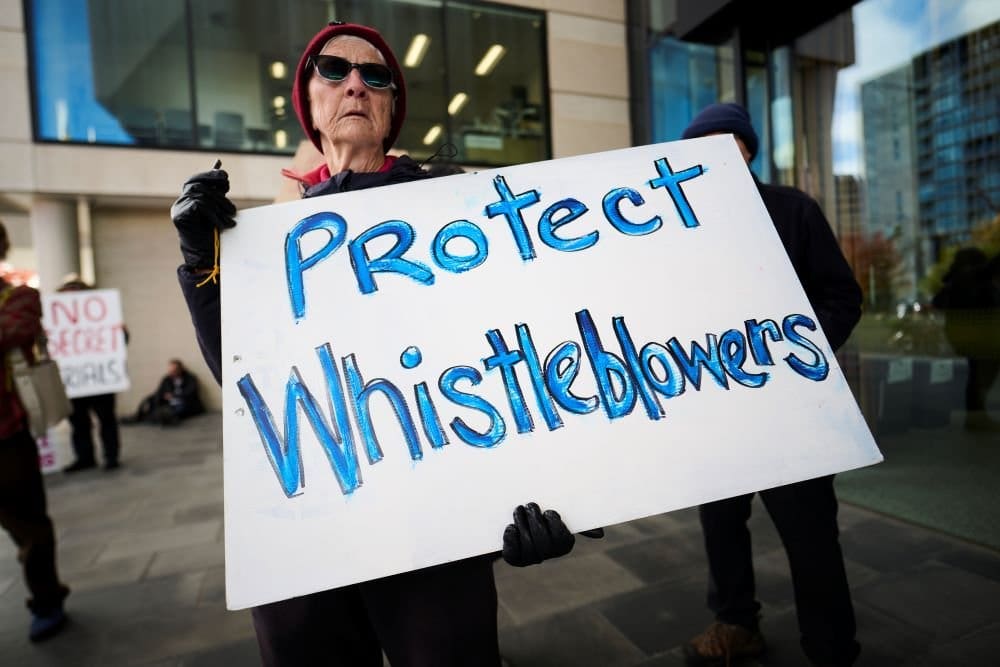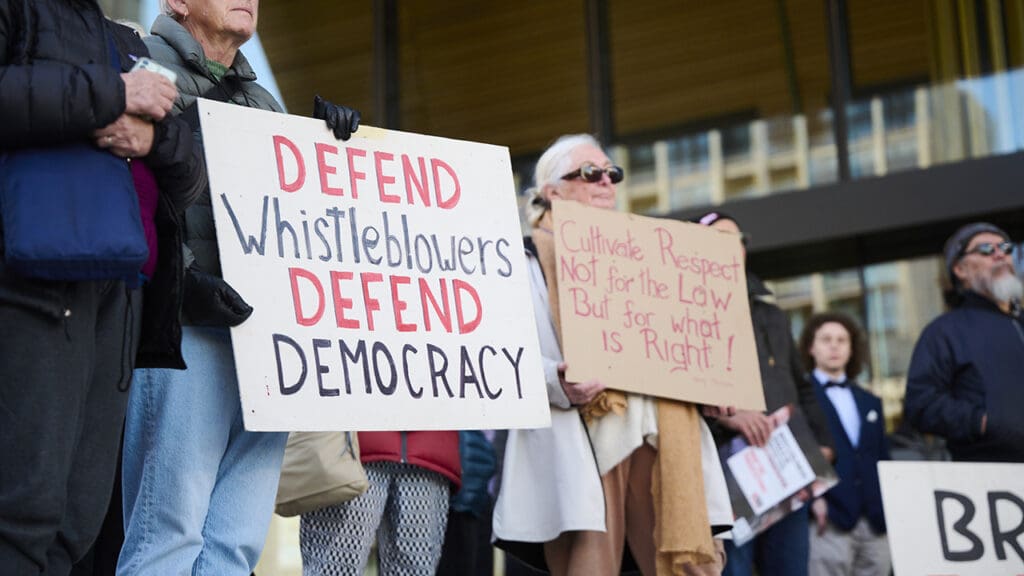McBride prosecution proceeding to trial after government intervention undermines whistleblowing defence
The Human Rights Law Centre has issued an updated statement reflecting new information arising in the prosecution of David McBride. The Attorney-General, Mark Dreyfus KC, was not the party to make the public interest immunity claim; it was instead made by another representative of the Commonwealth of Australia. Read more here.
The Human Rights Law Centre has condemned the ongoing injustice in the prosecution of David McBride, who blew the whistle on allegations of Australian war crimes in Afghanistan.
Today, at the start of what was scheduled to be a four-day hearing of McBride’s whistleblowing defence under the Public Interest Disclosure Act, barristers for McBride told the ACT Supreme Court that the Attorney-General had made a last-minute public interest immunity (PII) claim over parts of McBride’s evidence. The PII claim was made on national security grounds and made it impossible for McBride to effectively argue his whistleblowing defence.
In an extraordinary development, McBride’s barristers were forced to withdraw his whistleblowing defence. They indicated that McBride had no choice but to let the prosecution proceed to trial. It is anticipated the trial will take place next year.
McBride, a former military lawyer, served two tours in Afghanistan. He was arrested in 2018 and charged with five counts relating to his alleged whistleblowing to the ABC.
Kieran Pender, senior lawyer at the Human Rights Law Centre, said:
“The government’s last minute national security intervention in this case has made it impossible for David McBride to succeed in his whistleblowing defence. It is a devastating blow for Australian democracy.”
The Human Rights Law Centre has consistently called on the Commonwealth Director of Public Prosecutions or the Attorney-General to discontinue this unjust prosecution.
“Whistleblowers should be protected, not prosecuted. The Commonwealth Director of Public Prosecutions or the Attorney-General must end this unjust case. It is now unconscionable for the Attorney-General to allow this prosecution to go ahead, having used national security powers to sweep away any prospect of McBride defending himself on whistleblowing grounds.”
The Attorney-General Mark Dreyfus KC has publicly admitted that Australia’s whistleblowing laws are no longer fit for purpose. But he has so far refused to intervene and end the McBride case, or the ongoing prosecution of tax office whistleblower Richard Boyle.
“Mark Dreyfus has insisted that it was appropriate to let these cases play out in court, leaving these courageous whistleblowers to rely on a flawed shield in a law that he admits is broken. But now Dreyfus has denied even that shield to McBride. This is injustice of the highest order.
“Rather than prosecuting whistleblowers, the Australian Government should get on with fixing whistleblowing law and reckoning with Australia’s alleged war crimes in Afghanistan.”
The Human Rights Law Centre has developed an explainer webpage detailing the prosecutions of David McBride and Richard Boyle.
Media contact:
Michelle Bennett, Engagement Director, 0419 100 519, michelle.bennett@hrlc.org.au

Albanese Government’s progress on whistleblower reform welcomed
The Albanese Government’s announcement on the next phase of public sector whistleblowing reform is a positive step forward for protecting and supporting whistleblowers.
Read more
Statement on the neo-Nazi violence and racism on 31 August
The Human Rights Law Centre strongly condemns the neo-Nazi violence towards First Nations people and the racial vilification of migrant and refugee communities on 31 August.
Read more
Whistleblower Richard Boyle sentenced, ending years of unjust prosecution
Whistleblower Richard Boyle’s sentencing is another dark day for democracy, and shows that the Albanese Government must urgently act on whistleblowing reform.
Read more



